Is Sparkling Water Good for You? The Pros and Cons of Drinking Seltzer, According to Science

For most people, choosing sparkling water over other drinks, such as soda or juice, represents an obvious improvement. Seltzer is typically free of calories, sugar, additives, caffeine, alcohol, and other harmful ingredients found in America’s favorite beverages. However, the fact is that any dietary habit you repeat on a daily basis deserves a little extra consideration—even if it’s seemingly innocuous to your health. Drinking sparkling water is no different: Like all other dietary choices you make, it comes with its own distinct list of pros and cons. So, is sparkling water good for you? Read on to find out.
RELATED: I Tried Liquid I.V. Hydration for Two Weeks & Noticed 4 Changes to My Body.
Pro: Sparkling water can help keep you hydrated.
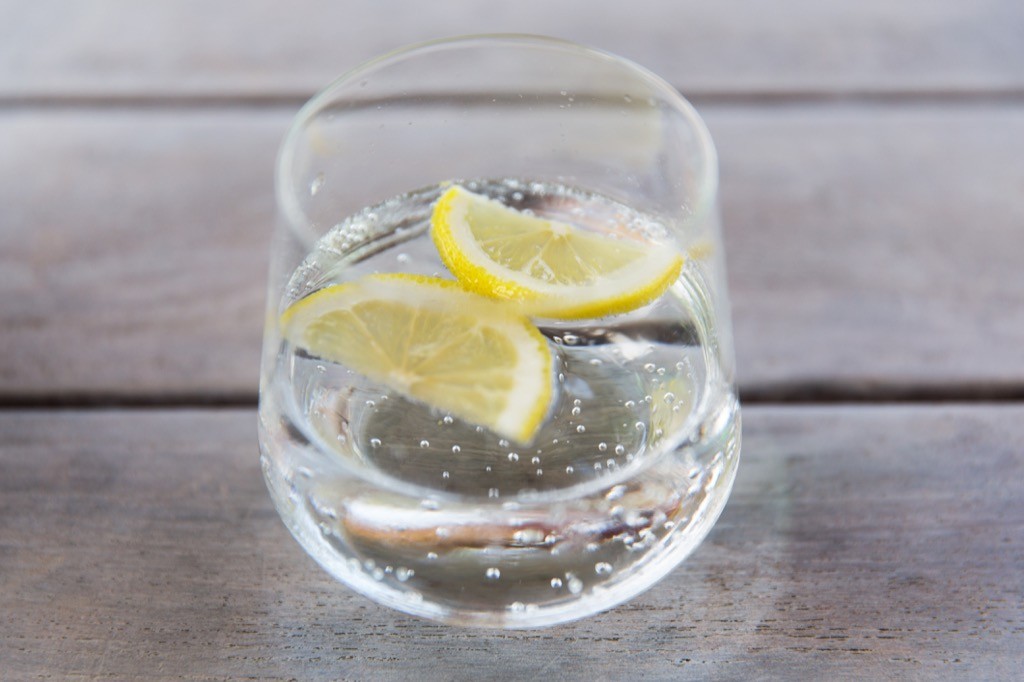
According to the U.S. National Academies of Sciences, Engineering, and Medicine, men should aim to drink about 15.5 cups (3.7 liters) of fluids a day, while women require about 11.5 cups (2.7 liters) of fluids a day. Drinking seltzer may help you reach those goals while avoiding beverages with added sugar or calories.
“If drinking plain water feels ‘ho-hum’ to you, but you enjoy water with a little bubble, you may be able to keep better hydrated during the day,” says Susie Kundrat, RDN, LDN, a registered dietitian and nutritionist and the author of Eat Move Groove: Unlock the Simple Steps to Lifelong Nutrition, Fitness & Wellness. “Clients sometimes tell me drinking water is boring, or they can’t get motivated to stay hydrated with plain water. However, sparkling water can add just enough fizz to entice people to drink more!”
Con: Seltzer can make you gassy.

Those with sensitive gastrointestinal (GI) tracts may prefer to stick with flat water over sparkling.
“If you tend to be gassy or suffer from gastroesophageal reflux disease or GERD, you may want to pass on the sparkling water. The extra bubbles can contribute to a gassy GI system or may make belching or heartburn worse for some people,” says Kundrat.
Pro: Sparkling water can help you reduce your calorie intake and lose weight.
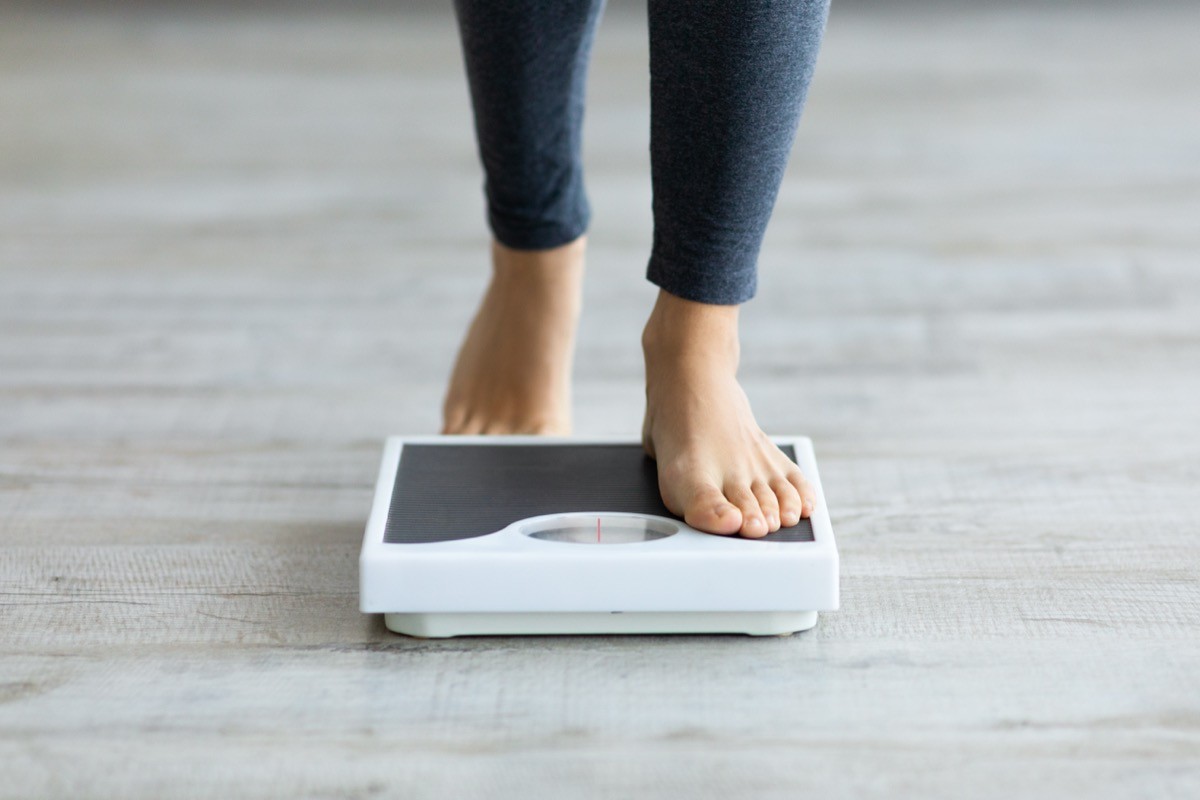
Drinking calories is generally considered less healthy than consuming them through solid foods because many high-calorie beverages are high in sugar but lack nutritional value. By replacing calorie-dense beverages with seltzer, you can make a big difference on the scale.
“For example, if you usually drink a 20-ounce regular soda each day and replace that with sparkling water that is calorie-free, you are saving 240 calories a day, or nearly 1,700 calories over the course of a week. Just by making this one ‘calorie displacement’ swap, in a year, you could lose 25 pounds in one year,” Kundrat shares.
RELATED: Your Tea Bag Could Be Exposing You to Toxins, Research Finds—How to Stay Safe.
Con: Seltzer can be expensive.
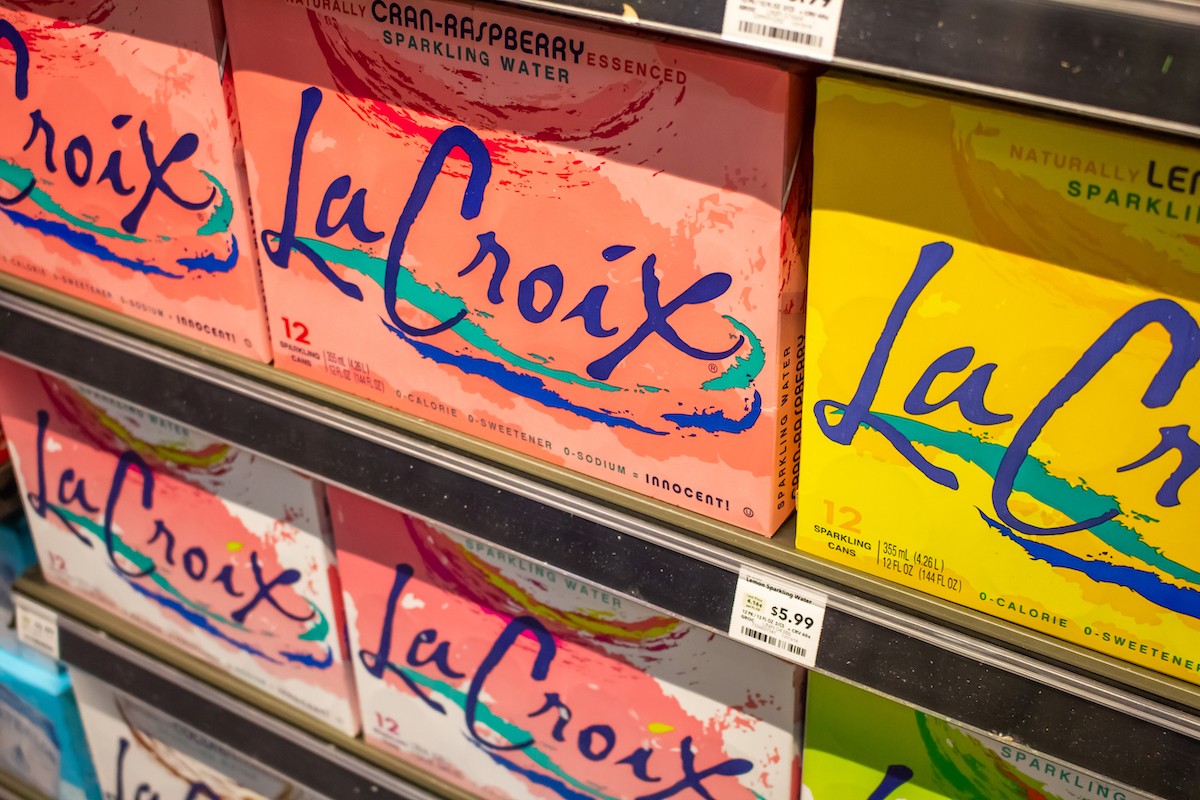
Compared to drinking free tap water, sparkling water takes a little investment.
“For instance, if you drink two cans of sparkling water a day and spend $6 for an 8-pack, that adds up to over $500 per year spent on sparkling water. You might have other places to use that money!” notes Kundrat.
Pro: Sparkling water can help stabilize your blood sugar levels.

Drinking sugar-free sparkling water can also boost your health by helping regulate your blood sugar—at least when you use it to replace sugary beverages like soda, juice, sweetened tea, and alcoholic beverages.
“I find it a great alternative for patients who want to have soda—especially for my prediabetic and diabetic patients, eliminating sugary soda can be very helpful in glycemic control,” says physician Rita Gupta, MD.
Con: The pH of sparkling water may harm your teeth.
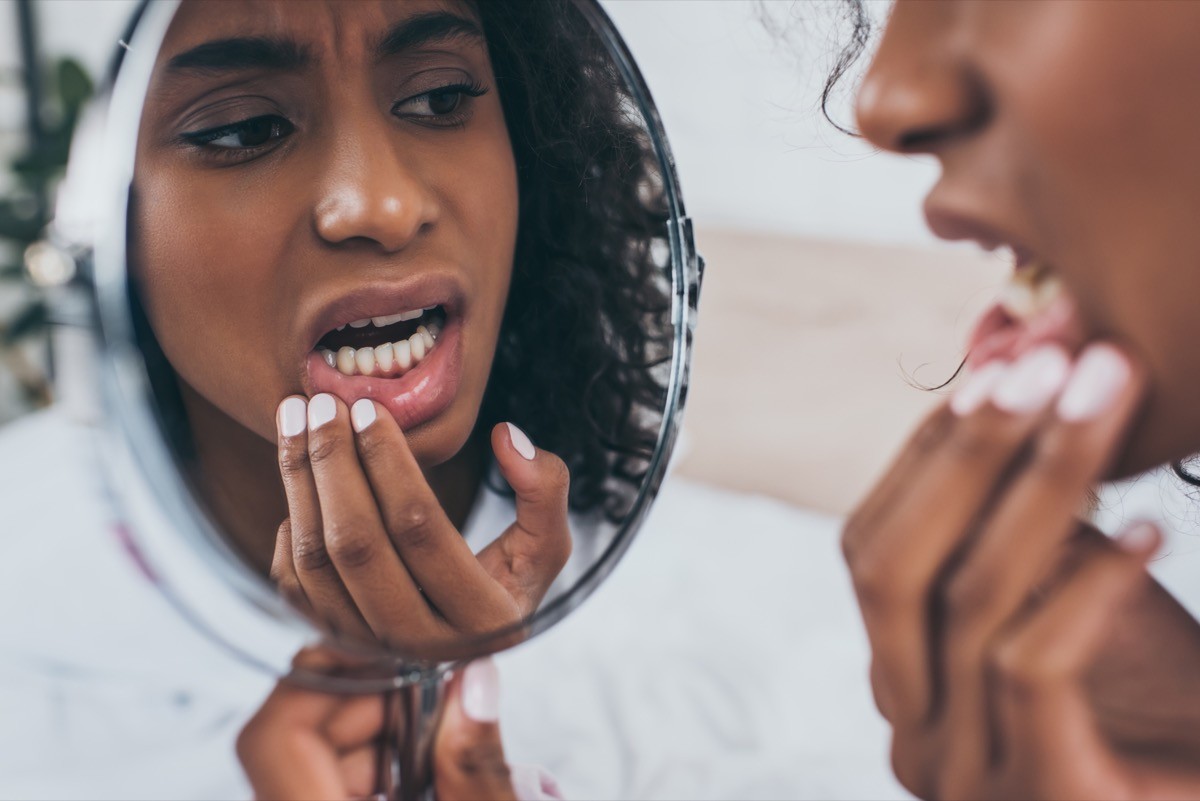
According to the Center for Science in the Public Interest, drinking too much sparkling water could erode the enamel of your teeth over time.
“Sparkling water is made by pumping carbon dioxide into water,” John Ruby, a retired professor of pediatric dentistry at the University of Alabama, Birmingham, explained in an interview with the organization. “The CO2 turns into carbonic acid, and the pH drops,” making the beverage more acidic.
“Once you lose enamel, you never get it back,” Ruby adds, noting that this can ultimately lead to sensitivity, discoloration, and loss of tooth structure.
He says enamel erosion occurs at a pH below 4: “A pH of 3 to 4 is erosive, and 2 to 3 is extremely erosive.” Seltzer or sparkling water with no added sugars or citric acid usually has a pH between 3 and 4, meaning you may be putting your teeth in harm’s way.
RELATED: 10 Hidden Sources of Sugar That Could Be Making You Gain Weight.
Pro: Sparkling water can improve symptoms for those with dysphagia.

According to a recent study published in the Journal of Addiction Therapy and Research, there are roughly 590 million people of all ages around the world who suffer from dysphagia or difficulty with swallowing. However, drinking carbonated beverages, such as sparkling water, may offer some relief.
“Studies have shown that drinking sparkling or carbonated water may significantly help with swallowing in older adults who struggle with dysphagia,” says Michael McGrath, MD, Psych, Chief Clinical Officer of The Ohana Hawaii and a board-certified psychiatrist working with The Oasis California Luxury Rehab.
Con: Seltzer can contain hidden sugar.
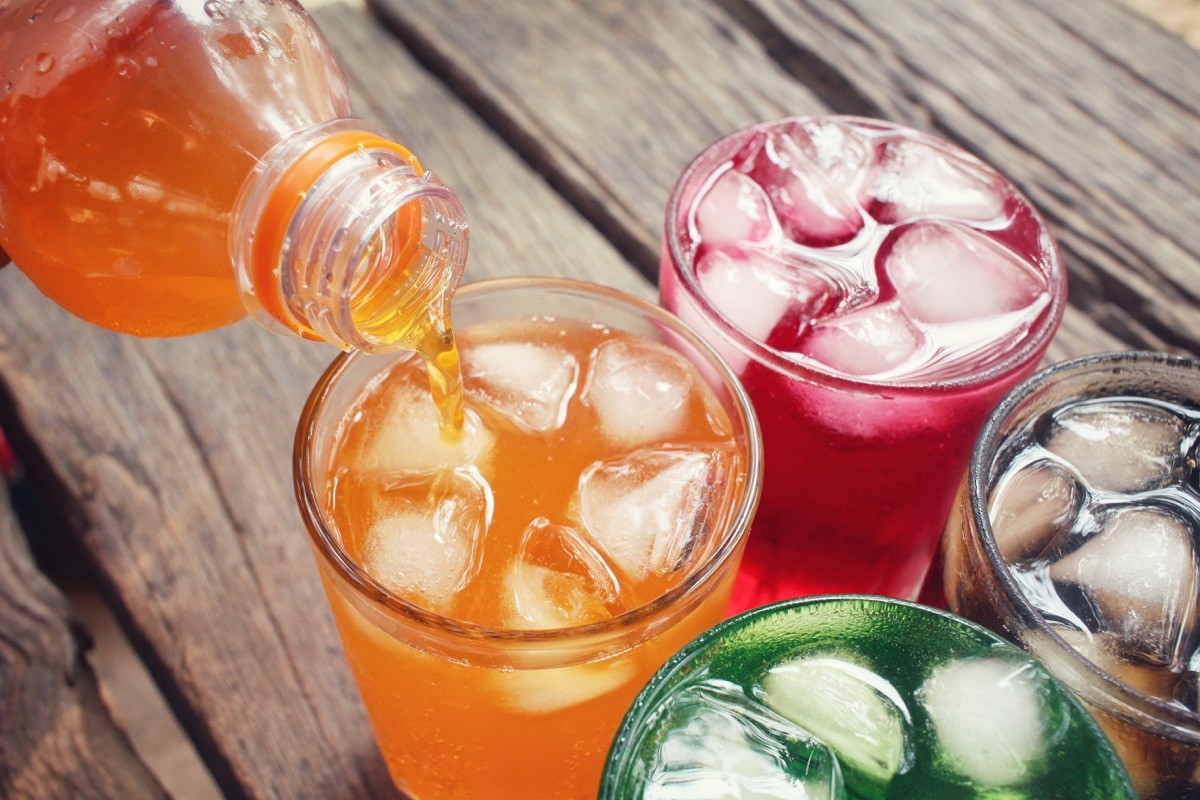
Some seltzer brands contain hidden sugar, which can further harm your heart health, gut health, and more.
“Some research on long-term, daily use of artificial sweeteners suggests a link to a higher risk of stroke, heart disease and death overall,” notes the Mayo Clinic. “Other research is looking at long-term use of sugar substitutes and the gut. Many focus on how the gut and brain communicate. Researchers are checking to see if sugar substitutes affect cravings for sweets, the way people feel hunger and how the body manages blood sugar.”
Experts from the University of Pennsylvania add that it can also harm your dental health: “Artificially sweetened beverages contain acids that cause tooth decay. The acids can wear away the enamel on your teeth. Over time, this weakened enamel can lead to cavities or other dental problems.”